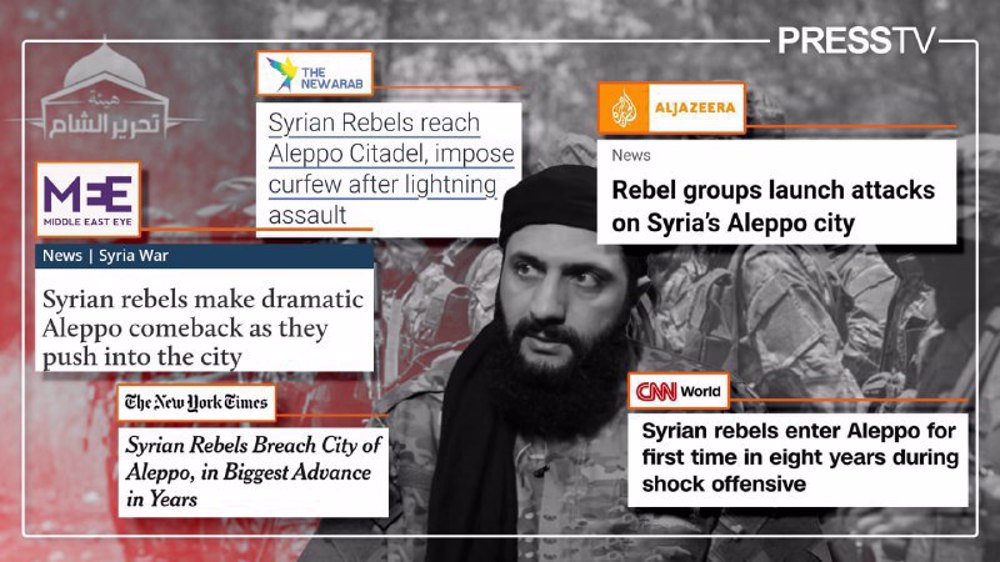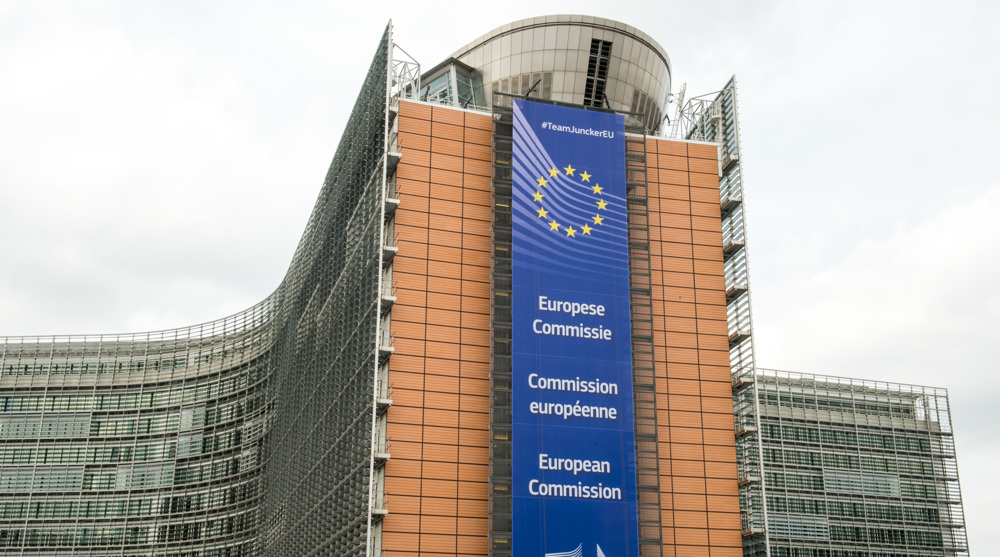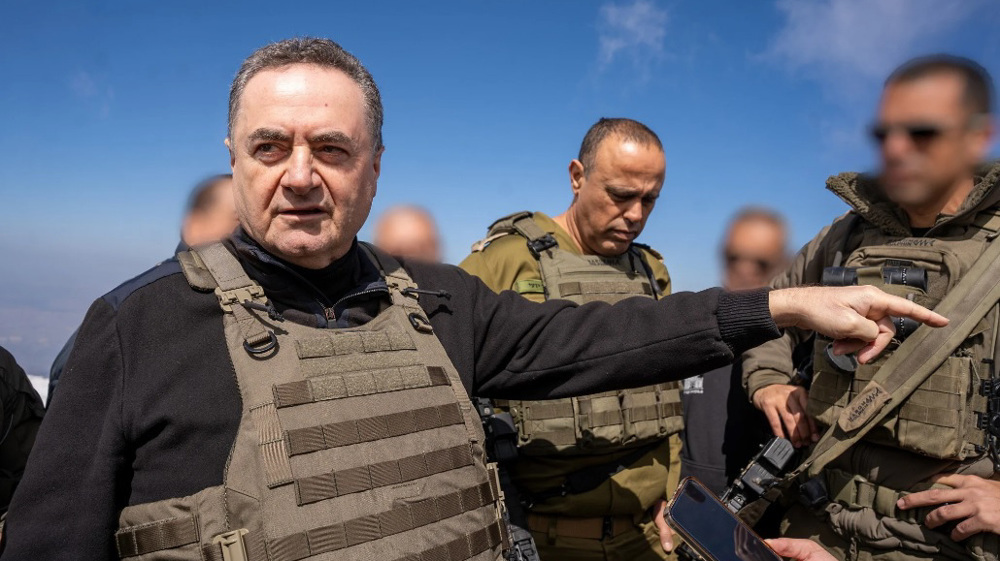‘Terrorists’ or ‘rebels’? How Western, Israeli, Arab media shape Syria war narrative
By Alireza Akbari
Following the Israeli-engineered terrorist invasion of the Syrian city of Aleppo last week, Western, Arab, and Israeli media once again jumped on the bandwagon to undermine the democratically-elected government of Bashar al-Assad in Damascus.
As the Hayat Tahrir al-Sham (HTS) and other Takfiri terrorist groups launched their attacks on Aleppo and Idlib, these media outlets branded them as "rebels" and "opposition figures" in order to shape the popular public opinion in the West and the Arab world.
The attacks came shortly after a ceasefire was announced in Lebanon, with the Israeli regime conceding defeat after more than two months of futile military adventure.
Soon after Israeli Prime Minister Benjamin Netanyahu reluctantly admitted defeat in a televised speech, social media was replete with videos featuring HTS terrorists, seeking to avenge Golani Brigades' defeat to Hezbollah in southern Lebanon.
Backed by the Israeli regime and its Western allies, these groups have in the past four days made advances in Aleppo and Idlib but have faced fierce resistance from the Syrian Arab Army (SAA).
Videos circulating online show HTS terrorists, many of them former al-Qaeda members, employing brutal tactics reminiscent of the Daesh terrorist group, including the beheading of a Syrian soldier.
However, aided by the aerial firepower of Russia, Syrian forces have been able to deal severe blows to the terrorists, with some reports putting their death toll at more than 1,000.
Syria’s state television reported on Monday that approximately 320 more terrorists were killed in the countryside surrounding Aleppo, Idlib, and Hama on Sunday, bringing the total death toll to 1,300.
Footage shows an airstrike targeting foreign-backed terrorists in Aleppo after the city was taken over by Hayat Tahrir al-Sham (HTS) terrorists. pic.twitter.com/v2nKKRayUy
— PressTV Extra (@PresstvExtra) December 2, 2024
Reflecting the pro-war policies of Western governments on the ongoing genocide in Gaza as well as its extension in Lebanon, Western media's coverage of the events in Syria, according to experts, aims to glorify terrorists and mercenaries by portraying their violent incursions as legal and legitimate.
The BBC headline on Saturday asked, "Who are the rebels seizing control of Syria's second city," as if the Syrian side was the aggressor and the Israel-backed aggressors were the victims.
This choice of language used in the news story sparked anger and outrage among activists on social media, who criticized the use of the term "rebels" for "terrorists" on the killing spree in Syria.
The article began with the statement that “rebel forces” launched the largest offensive against the Syrian government in years, failing to address the invasion's impact on civilians and local communities.
The British state broadcaster that has been called out for its blatant bias in the coverage of the Israeli genocidal war on Gaza and Lebanon, characterized the terrorist invasions as being “against the Syrian government,” overlooking the loss of civilians during the ongoing attacks.
Later in the story, in its description of Hayat Tahrir al-Sham (HTS), the BBC article noted that the Takfiri terrorist group has established a power base in Idlib, functioning as the de facto local administration.
However, it also mentioned that HTS's attempts at legitimacy have been marred by “alleged human rights abuses," employing the word "alleged" to cover up their actual documented crimes.
Activists were quick to criticize the BBC's use of the term “alleged,” arguing that the British broadcaster seems reluctant to classify the notorious group as “terrorists.”

France 24's headline on Friday, November 29, stated that Syrian "rebels" reached the Arab country's second city of Aleppo "as the deadly campaign continues”
The use of the terms "reach" instead of "invade" and "rebels" instead of "terrorists" effectively diluted the severity of the ongoing terrorist incursions in Syria, according to media observers.
The article stated that “the rebels have seized” more than 50 towns and villages in northern Syria, with critics arguing that the word "seize" conveys a sense of accomplishment that undermines the seriousness of the invasions taken by these notorious groups.
A field report accompanying the story described the terrorists as “jihadist groups” approaching Aleppo.
A member of the group was quoted in the report saying, “I have been displaced for five years, but thank God I am now able to reclaim our land from the grip of the criminal regime.”
Observers criticized the report for lacking the perspective of Syrian soldiers and citizens, characterizing the report as “one-sided and biased.”

CNN's November 30 headline read, “Syrian rebels take control of most of Aleppo city.”
The report from the American broadcaster attributed the term "Syrian" to non-Syrian terrorists and mercenaries, most of them from Central Asian countries, involved in violent attacks in the Arab country.
The article stated that "Syrian opposition forces" took control of much of Aleppo, the country's second-largest city, following a "rapid advance" that resulted in the deaths of dozens of "government soldiers," which posed a "significant challenge to President Bashar al-Assad."
CNN's phrasing raised concerns among experts as it referred to the Syrian army as "government soldiers" while labeling non-Syrian mercenaries involved in the attacks as "Syrian opposition."
Observers argued that foreign mercenaries bankrolled by Western countries and supported by the Zionist regime cannot be dubbed the "opposition."

Associated Press's December 1 headline read, “After entering Aleppo, Syrian insurgents advance to a nearby province. Assad says he’ll defeat them.”
This headline also attributed the term "Syrian" to foreign mercenaries invading the Arab country.
The report stated that “thousands of fighters” advanced with no opposition from “government forces,” further framing the terrorists as “fighters” pitted against Syrian “government soldiers.”

The New York Times headline on November 30 read, “Rebels seize control over most of Syria’s largest city,” giving a rather triumphant vibe, while referring to terrorists as "rebels."
The American news agency reported that the “rapid advance” on Aleppo occurred just four days into a surprise “opposition offensive,” marking the most intense escalation in years of the civil war.
This framing aligned with that of other Western and Arab media outlets as the language suggested a portrayal of the terrorist invasion as an "opposition offensive.”
The deliberate portrayal of terrorists and mercenaries as "opposition" has raised many eyebrows.

The Washington Post's December 1 headline read, "Syrian rebels defend gains in Aleppo, push south."
The use of the word "gains" to describe the invasions of West-backed terrorists also did not go down well with observers, as it sought to present these invasions as legitimate military achievements.
Critics have particularly taken issue with the verb "defend," arguing that it implies legitimacy for positions held by armed Takfiri groups rather than acknowledging their status as terrorists.
The article added that "the insurgent” offensive, shocking for its speed, has posed the most serious challenge to President Bashar al-Assad in years, without taking into account its broader implications.

NBC’s December 2 headline read, “Middle East conflict live updates: Syrian government counterattacks as rebels push forward”
The story reported that the “Syrian government is counterattacking the “rebels,” pushing the same "rebels vs government forces" narrative to lend legitimacy to their terrorist actions.

Politico’s November 30 headline read, “Syrian rebels reportedly take control of half of Aleppo.”
The American news outlet also refused to label the assailants as terrorists, opting for the term “rebels,” and further noted that "surprise attacks" have injected more uncertainty into a region "convulsed by wars in Gaza and Lebanon," without any mention of the Israeli genocidal wars.

Al Jazeera’s November 29 headline read, “Rebel groups launch attacks on Syria’s Aleppo city.”
The coverage of the events in Syria by the Qatari news network has also faced intense scrutiny, with observers arguing that it aligns with the Western narrative of vilifying the Assad government.
Particularly controversial is the term "rebel groups," which undermines the violent nature of these terrorist groups and obscures the significant harm they inflict on civilian populations in Syria.

The Qatari-funded New Arab website’s November 29 headline read, “Syrian rebels reach Aleppo citadel, impose curfew after lightning assault.”
The headline was followed by a report that noted that “the Syrian regime” has reportedly closed Aleppo's airport and canceled all flights as “rebels” continue to move into the heart of the citadel.
The story failed to adequately address the violent and evil tactics employed by these terrorist groups, which the website dubs "rebels," while also painting a gloomy picture of the situation.

Middle East Eye, another Qatari-funded news website headquartered in the UK, in its November 29 headline stated: “Syrian rebels make dramatic Aleppo comeback as they push into the city.”
The news outlet framed the terrorist invaders in Syria as “Syrian rebels,” like other outlets.
This characterization, particularly the description of the terrorist' reinvasion of Aleppo as a "comeback," drew criticism from analysts who attributed it to the website's affiliation with the Qatari government.

The Times of Israel’s December 1 headline read, “Rebels in Syria take advantage of Israel’s successes against a weakened Iran axis.”
The Israeli daily framed the events in Syria through the lens of “rebels” taking advantage of the situation, linking this so-called “advantage” to the “success” of the Israeli regime.
The story not only distorted the realities on the ground in Syria but also attempted to obscure the disgraceful defeat faced by the Israeli regime in Gaza and Lebanon.

Another significant aspect, according to experts, overlooked by these media outlets is the connection between the Al-Nusra Front, now known as Tahrir al-Sham, and the Israeli regime, along with the support it has extended to this notorious terrorist group.
Al-Nusra Front has over the years been responsible for a series of massacres of ethnic and religious minorities in the Arab country while receiving substantial military and medical assistance from Israel.
Reports indicate that the Israeli regime provided funding, weapons, and medical care to members of this group who crossed into the occupied Palestinian territories from the occupied Golan Heights.
Hamas and Islamic Jihad delegations meet in Doha
UN rapporteur: Israel engaged in 'ethnic cleansing' in West Bank
French MPs adopt resolution, calling for seizure of Russian assets
Israel jets bomb Damascus outskirts as tanks advance in Quneitra
UN Security Council meeting on Iran ‘blatant political maneuver’: Envoy
US imposes new sanctions day after Trump's letter delivered to Iran
US activists denounce Trump for using 'Palestinian' as slur
Unilateral sanctions hinder Iranian women’s empowerment, prosperity: Experts














 This makes it easy to access the Press TV website
This makes it easy to access the Press TV website